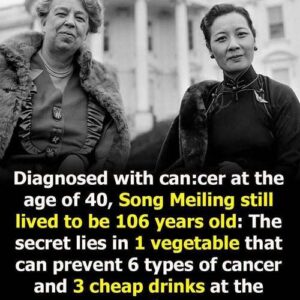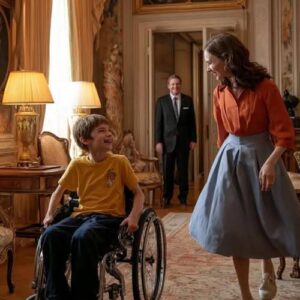I’d agreed to help my sister sell off our late father’s old tools—boxes of rusted wrenches, vintage drills, and garage equipment with more sentimental value than real use. But when I arrived at the storage unit, almost everything was gone. My sister insisted I’d already picked it all up weeks ago.
My stomach turned. I remembered what else was stored there. I started to say, “But the will said…”
She looked at me with confusion, like I was the one getting things mixed up.
“The will said the tools were yours, right? So… you must’ve come and grabbed them.”
I stared at the clean concrete floor, still marked with outlines where the heavy metal cabinets once sat. Not even a washer left behind.
“No, Leila,” I said. “I just got the keys yesterday.”
She gave a casual shrug. “Maybe someone broke in?”
But the padlock was untouched. There was no sign of forced entry, no damage—nothing that made sense. That’s when I remembered something else: Dad’s old cigar tin. It wasn’t listed in the will, but both of us knew what he kept inside it. Cash. A lot of it.
No bank deposits. No safes. Just bundles of bills wrapped in rubber bands, stuffed inside a battered Romeo y Julieta cigar box. Dad never trusted banks again after a scam in ’98 cost him his savings.
Now the whole drawer it had been hidden in was gone.
I looked at Leila. She was picking at her thumb, avoiding my eyes.
“I didn’t take anything,” she said, quickly. “Stuff goes missing in those places all the time. Maybe someone got a key copy. Maybe the front desk guy messed up.”
It wasn’t impossible. But it didn’t sound like her.
Leila’s always been meticulous. The kind of person who alphabetizes her spice rack. She wouldn’t let a whole unit vanish without noticing.
I let it slide—at least for now. But I knew something wasn’t right.
A couple days passed. I couldn’t stop thinking about it. I reread Dad’s will over and over, like maybe I’d misread something. But no—he’d left Leila the house, and I was supposed to get the storage unit. It made sense. I was the one who spent weekends helping him fix up mowers and sand down old workbenches.
So why would she lie?
Unless she thought what was in there should’ve been shared.
Or maybe… she’d already shared it—with someone else.
I drove back to the unit, hoping I’d missed something the first time. But it was still empty. Same smell of oil and dust. Only cobwebs and sawdust in the corners.
On the way out, I saw Rudy, the facility manager. He was sweeping up near the office, and I waved him down.
“Hey Rudy, any chance someone accessed Unit 147 in the past month before I did?”
He squinted. “Let me think… You’re the only one with access on file. Oh—your sister came by, said she was helping out. Claimed you gave her permission.”
“Did she show any ID?”
“No. But she had a key. It worked.”
That told me everything. She must’ve had a duplicate made. And she got there before I ever had a chance.
I went back through old texts. Looking for clues. Had she ever told me she was clearing it out?
Then I saw it. A message from her a few weeks earlier:
“Let me know when you’re free to meet at the storage unit. We can go through Dad’s stuff together.”
I replied: “This weekend?”
Work got crazy. I never followed up.
She didn’t wait. And now I was beginning to think… maybe that was the plan all along.
That night, I called her.
“I talked to the manager. He said you were there.”
There was a pause.
“Yeah, I stopped by. Just grabbed the photo albums. Remember? Dad wanted Mom to have those.”
That part was true. But it wasn’t what I was asking.
“You cleaned out the whole place, Leila.”
“No, I didn’t. It was basically empty when I got there. Maybe you forgot you went already?”
She was doubling down.
I almost laughed.
“You really think I somehow hauled out 300 pounds of tools and forgot?”
Silence.
Then:
“Look, what’s this really about? Is this about the house? If you need some money from the sale, we can figure that out.”
And there it was.
She thought I was just bitter about her getting the house. That this was some kind of play for compensation.
“No,” I said. “I don’t care about the house. But Dad’s cash was in there. And you know that.”
She hung up.
No follow-up. No explanation. Just silence.
A few days later, her husband, Anwar, called me.
He sounded nervous.
“Hey Niko… Can we talk?”
We met at a diner. He showed up in sweats, eyes heavy, barely touched his coffee.
“I didn’t know,” he said. “She told me you said it was fine. That you didn’t care about the tools. I didn’t ask questions.”
“But now?”
“I found the cigar box. In our closet. Behind the suitcases.”
I closed my eyes.
“She said she’d split it with you,” Anwar added. “Said it was just old tools at first. I didn’t realize what was actually in there until I opened it.”
“How much?”
“Almost thirty grand.”
Dad’s life savings. In twenties and fifties. Saved over years of weekend jobs and skipped luxuries. That was him, in that box.
Anwar pushed an envelope across the table.
“I want to give you your half.”
I didn’t touch it.
“It’s not just about money,” I said. “It’s that she lied. Repeatedly. And made it seem like I was the problem.”
He nodded. “I know. I just… thought you should hear it from me.”
I left the envelope there. Still sealed.
A few days later, my aunt—Dad’s sister—called.
“Leila told me you’re trying to sue her over tools,” she said dryly.
“I’m not suing anyone. She took what wasn’t hers and tried to gaslight me.”
Another pause.
“She always felt like she was the responsible one,” my aunt said. “Maybe she thought she earned more.”
“That’s not how this works.”
“I know, Niko. But your dad… he was softer with you. She felt like she had to be the strong one. It twisted things in her head.”
I didn’t like it. But part of it rang true.
A week later, I went to her house. With the envelope.
She opened the door looking worn down—no makeup, baggy clothes, tired eyes.
“I know what you did,” I said. “And I don’t care what story you’re telling other people. But I want you to hear this: I would’ve shared it, Leila. If you’d just asked. But you lied. And you broke something.”
She didn’t look up at first.
“I was scared,” she whispered. “That you’d cut me out after Dad died. I thought… if I just got it over with, maybe it’d feel easier.”
It didn’t make much sense. But grief does strange things.
“I’m not disappearing,” I said. “But I’m not going to pretend this didn’t happen.”
I handed her the envelope.
She looked confused. “Why are you giving it back?”
“Because this wasn’t about money. It was a test. One I didn’t know I was giving. You failed it. So keep it. But you sit with that.”
I turned and walked away.
Weeks passed. No contact.
Then one day, a handwritten note arrived. Inside was a check for fifteen thousand dollars.
“You were right. I lied. I failed. I’m sorry. Not because I got caught—but because I betrayed you. I want to fix things, if you’ll let me. I want my brother back.”
That got me.
We met for coffee. No drama. No yelling.
She asked if I wanted to go through Dad’s photo albums sometime.
I said yes.
Not because everything was suddenly healed.
But because it was a step.
Sometimes the people we love hurt us deeply.
But healing doesn’t mean pretending nothing happened.
It means facing the truth, offering grace, and slowly choosing to move forward—together.





